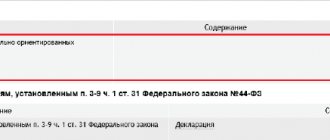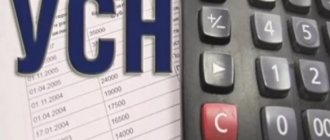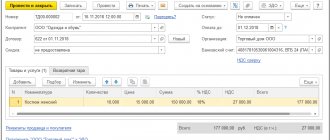Small Russian enterprises are entitled to certain support from the state. Who exactly can count on it and under what conditions? To answer this question, it is necessary to consider the criteria for classification as small and medium-sized businesses. This division has become especially relevant this year, because business support measures related to the spread of the new COVID-19 infection are more focused on SMEs.
The conditions that must be met to be classified as one or another category of small and medium-sized businesses are spelled out in Article 4 of Law No. 209-FZ dated July 24, 2007. Next, we will analyze in detail the requirements for SMEs and see who belongs to them in 2021.
Free accounting services from 1C
What is small business
According to the Constitution of the Russian Federation and the Civil Code, any citizen has the right to open an individual entrepreneur and organize an enterprise. Small businesses in Russia are supported at the government level and receive considerable benefits.
Small and medium-sized enterprises are commercial activities characterized by established criteria. These include annual income, number of employees, share in the authorized capital, etc.
Small enterprises are considered an important and most flexible element of the market structure. Their activities are aimed at identifying consumer needs for goods and services and satisfying them.
Important! Small and medium-sized businesses are an important factor in stimulating competition. To win clientele, enterprises have to compete with each other, thereby identifying the most viable entities within the market economy.
Is there any sense in such support?
Despite the distrust and prejudiced attitude of the population towards government programs, there is a sense in such types of support. Representatives of small businesses are beginning to use the benefits provided more and more actively. True, a huge part of such enterprises still remains in the shadows due to the fact that most benefits rely on a temporary period, after which the organization will have to pay taxes in full.
Also an obstacle are the strict conditions required to receive benefits. First of all, they can be difficult to get under. In addition, the task is also complicated by the lack of information: it is quite difficult to find clear and understandable data on how, what and why you need to do in order to receive benefits.
For these two reasons (and also because of distrust in the state), although small businesses are taking advantage of the concessions provided, they are not yet fully able to do so.
Report on government support for small businesses (video)
Comparing the tax burden on small and large businesses
If a small business enterprise qualifies for benefits, it has the right not to pay taxes at all at the initial stage of its activity. As an example, let us give the size of the tax burden on some large Russian enterprises.
The largest tax burden for 2021 was incurred (in%):
- Slavneft (oil and gas industry): 43.8%.
- Surgunteftegaz (oil and gas industry): 32.4%.
- Rosneft (oil and gas industry): 27.3%.
- Tatneft (oil and gas industry): 26.9%.
- Russian Post (delivery, communication): 26.7%.
- Bashneft (oil and gas industry): 21.5%.
- Polyus (mining): 19.3%.
- Gazprom (oil and gas industry): 19.1%.
- ALROSA (metalworking, mining): 18.5%.
- NOVATEK (oil and gas industry): 16.2%.
And now, for comparison, here is a list of large Russian companies with the lowest tax burden (for 2021):
- Lenta (supermarket chain): 1.2%.
- X5 Retail Group (trade): 1.3%.
- Inter RAO (energy sector): 1.3%.
- Vnesheconombank (finance): 1.3%.
- Otkritie Holding (finance): 1.3%.
- Magnit (supermarket chain): 1.6%.
- Alfa Bank: 1.9%.
- VTB (finance): 2.1%.
- SUEK (mining): 2.5%.
- Aeroflot (transport company): 2.6%.
Please note: the rating is unofficial and is based on the figures given in the article on the RBC portal.
What do entrepreneurs themselves say?
The easiest way to find out the truth about benefits for small businesses is to ask the entrepreneurs themselves.
In general terms, the reviews are contradictory: some talk about how they actively use benefits from the state, while others complain that not only do you not get benefits, but the state also interferes with small businesses from doing business.
Here are a few specific examples from various forums:
Small businesses
In short, a small business entity is an organization, individual entrepreneurs, whose activities meet the national criteria for small business. They are bearers of economic rights and obligations, possess property and are endowed with competencies.
Who belongs to small businesses is determined by Art. 4 of the Federal Law of July 24, 2007 No. 209-FZ. This category includes:
- business entities, partnerships or partnerships;
- consumer and production cooperatives;
- farms;
- individual entrepreneurs.
Citizens of the Russian Federation or foreign countries (individuals - individual entrepreneurs and private entrepreneurs, i.e. entrepreneurs without forming a legal entity), partnerships and teams of entrepreneurs (legal entities) can become self-employed entrepreneurs.
Since 2021, a unified state register has been launched, which includes information about all medium and small enterprises registered in the Russian Federation. It stores and makes available to the public the following information about the NSR:
- Name;
- TIN and location;
- category;
- activity codes;
- license.
Additionally, information about the signing of contracts, participation in government partnership programs, and manufactured goods is entered. To confirm his status, an entrepreneur just needs to take an extract from the register from the tax service. The document is valid for presentation to business partners and for concluding transactions.
Important! After receiving official SMP status, an organization can apply for participation in the state support program. Previously, this required providing financial statements for the year and other documents. This is not required in 2021.
Small Business Inspections 2021
For such enterprises, shortened inspection periods apply. Any regulatory authority can inspect a small business entity for no longer than 50 hours per year. And for micro-enterprises the maximum period is 15 hours per year.
For 2 years (from January 1, 2021 to December 31, 2018), the “kids” were granted supervisory holidays. This benefit for small companies and individual entrepreneurs was established by Federal Law No. 246-FZ dated July 13, 2015. But this only applied to scheduled inspections. If a complaint is received from a consumer or government agencies have information about a company violating the law, inspectors will come with an audit.
The period of validity of the “supervisory holidays” established by Federal Law No. 246-FZ, which expired at the end of 2021, was extended for 2021 and 2021 by Federal Law No. 480-FZ of December 25, 2018, it was published on the official portal of legal documentation. However, it must be borne in mind that supervisory holidays do not apply to inspections carried out using the risk-based control method, and this method is used by such departments as the Federal Tax Service, the Ministry of Emergency Situations, the Federal Antimonopoly Service, Rosprirodnadzor, Rosalkogolregulirovanie and Rospotrebnadzor. From this we can conclude that small businesses are not exempt from inspections by these departments.
In addition, there will be no supervisory holidays for those enterprises that are engaged in licensed activities - these are:
- banks;
- insurers;
- Private security companies;
- subsoil users;
- pharmaceutical companies;
- carriers
and many others (a full list of 52 points is given in Article 12 of the Federal Law of May 4, 2011 N 99-FZ “On licensing of certain types of activities”).
Criteria for a small entrepreneur
In recent years, amendments have been made to Law No. 209-FZ, which have made it possible to revise the definition and concept of a small enterprise and become the basis for the fact that more organizations and individual entrepreneurs have become part of the SMEs.
The criteria were established for different categories of small businesses:
- Microenterprise. Annual revenue is 120 million rubles, the number of employees is no more than 15 people.
- Small business. Has the right to receive annual revenue of up to 800 million rubles. The staff consists of no more than 100 people.
- Medium enterprise. Annual revenue is up to 2 billion rubles, employs up to 250 people. Up to 1,000 employees have the right to hire business partnerships according to the list of light industry enterprises approved by the Ministry of Industry and Trade.
If other persons do not work for the entrepreneur, assignment to one of the listed categories is carried out based on the amount of revenue.
In 2021, the share in the authorized capital of the enterprise of other commercial organizations may be 49% instead of the previous 25%.
Benefits for small businesses in 2019
Small companies and individual entrepreneurs that fall under the listed criteria will enjoy certain benefits in 2019.
- They may not set a limit on cash held at the cash desk (clause 2 of Bank of Russia Directive No. 3210-U dated March 11, 2014). For storing cash in the cash register over a certain amount, a fine is provided under Art. 15.1 Code of Administrative Offences. Small businesses can keep any amount of money in the cash register. True, if the cash limit was previously established at the enterprise, then it must be canceled - an appropriate order must be issued. An order can be issued at any time - this type of enterprise has this right.
- They can conduct simplified accounting (clause 4 of article 6 of Federal Law No. 402). For individual entrepreneurs, this benefit is not relevant, since they are already exempt from the obligation to maintain accounting. But a company has the right to charge depreciation once a year, and not every month. Material production costs should be written off in full immediately, rather than as they are used. Each PBU lists simplified accounting methods used by beneficiaries. Micro-enterprises can even conduct accounting using the continuous method of recording business transactions.
IMPORTANT! Important! Accounting benefits do not apply to joint-stock companies and LLCs with income over 800 million rubles, since auditing is mandatory for these companies.
- Exempted from annual continuous statistical observation (such observation is carried out once every five years, in between - selective).
- They have the right to turn to regional authorities for subsidies and investments - for those receiving special regimes, regions reduce tax rates. Also, property tax benefits are provided for small businesses at the regional level.
- Subjects of such businesses have a pre-emptive right to purchase state and municipal real estate that is leased from them (Federal Law No. 158 of June 29, 2015).
- They have preferences in the public procurement system.
- Micro-enterprises have the right to fully or partially refuse to adopt local regulations, such as internal regulations, shift schedules, bonus provisions, etc. But in this case, the employer includes all the necessary conditions in the employment contract with the employee. Such employment contracts must be concluded in a standard form, which is approved by Government Decree No. 585 of August 27, 2016. However, if the status of a micro-enterprise is lost, the employer will have to restore all local regulations within 4 months.
We wrote about how to draw up an employment contract for micro-enterprises in a separate article.
What are the restrictions?
Small business owners cannot be employees of the court, law enforcement and government agencies, or the military. However, these persons may own shares of the enterprise and receive dividends from them. Citizens with a criminal record for theft, bribery and commercial crimes are prohibited from engaging in entrepreneurial activities.
Strict restrictions are placed on profit margins and the number of employees. If the criteria are exceeded, the entrepreneur may lose his status. Until 2021, if the limit on revenue or number of personnel was exceeded, small businesses and all individual entrepreneurs continued to be considered as such for another 2 years. If during this time the owner of an organization or individual entrepreneur did not apply for a new status (for example, a medium-sized enterprise), he was deprived of the previous one. By 2021, the limit has been extended for another 1 year.
Before the establishment of new profit criteria, small entrepreneurs were called such if the SMP received no more than 400 million rubles per year. If the status of an individual enterprise was lost in those years, a businessman can now apply to the tax office to return it, if the annual profit of the organization does not exceed 800 million rubles.
Important! Observe prescribed restrictions. Caution when preparing documents will protect you from losing your status.
Benefits of SMEs
Compared to large holdings, small and medium-sized enterprises have significant privileges. Let's take a closer look at some of them.
Organizational privileges
1. Small businesses have the right to apply simplified taxation regimes, under which it is easier to submit reports (on the popular simplified tax system, they are submitted once a year). The relaxation does not apply to LLCs or JSCs whose revenue exceeds 800 million rubles per year. In such organizations, an additional audit is carried out. 2. There is no need to set a cash limit at the cash desk. That is, a businessman can keep any amount of money in the cash register. 3. SMEs have an advantage over large companies in the process of acquiring leased real estate (municipal, state). 4. Inspections by supervisory authorities of companies in small and medium-sized business sectors are carried out according to a “gentle” program - no more than 50 hours annually. Micro-enterprises are inspected 15 hours every year. Scheduled inspections are required if a company or individual entrepreneur operates in the field of healthcare, heat supply, education, energy or public projects
Tax benefits
An enterprise falling into the category of SMEs can significantly reduce the amount of tax deductions. Existing preferential tax systems have certain conditions under which they can be applied. For example, a legal entity cannot use a patent (PSN). For the remaining regimes - a simplified taxation system, a single tax on imputed income and a unified agricultural tax - everything depends on compliance with the criteria for annual income and the size of the organization.
| Name of tax system | Annual income limit | The number of employees |
| UTII | Not installed | No more than 100 |
| simplified tax system | No more than 160 million rubles | No more than 100 |
| PSN (available only for individual entrepreneurs) | No more than 60 million rubles | No more than 15 |
| Unified agricultural tax | The share of profit from the sale of agricultural products is at least 70% of total income | For individual entrepreneurs, fisheries enterprises - up to 300 people, for agricultural organizations - unlimited |
In 2021, changes were made to the legislation, thanks to which authorities in Russian regions have the opportunity to reduce tax rates for UTII and the simplified tax system at their discretion. For the single tax on imputed income (UTII), they can reduce the rate from 15 to 7.5%, for the simplified tax system - from 7 to 1%. At the same time, the company or individual entrepreneur must promptly pay insurance premiums to extra-budgetary funds and create new jobs (expand the workforce). For more information on how to correctly calculate insurance premiums for individual entrepreneurs, read
Tax holidays for SMEs
In the period from 2015 to 2021, entrepreneurs who registered their activities for the first time have the right to reduce the tax rate to 0%. Tax holidays require the following conditions to be met:
- choice of PSN or simplified tax system as a taxation system;
- documentary registration of the company later than the date when the law on tax holidays within the region was adopted;
- the type of activity must correspond to the list fixed in the law adopted at the regional level.
Read about the pros and cons of the simplified taxation system. The criteria for identifying SMEs have not undergone major changes in 2021. Russian legislation still allows representatives of small and medium-sized businesses to independently choose a convenient taxation system and enjoy benefits.









